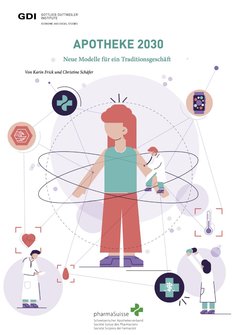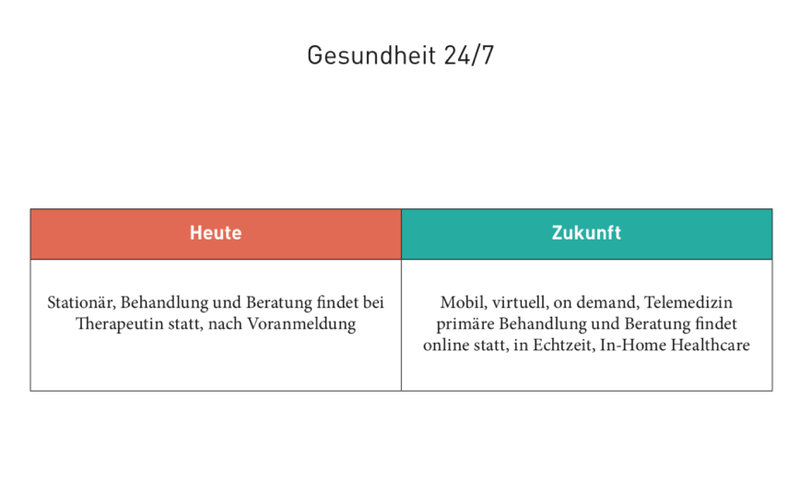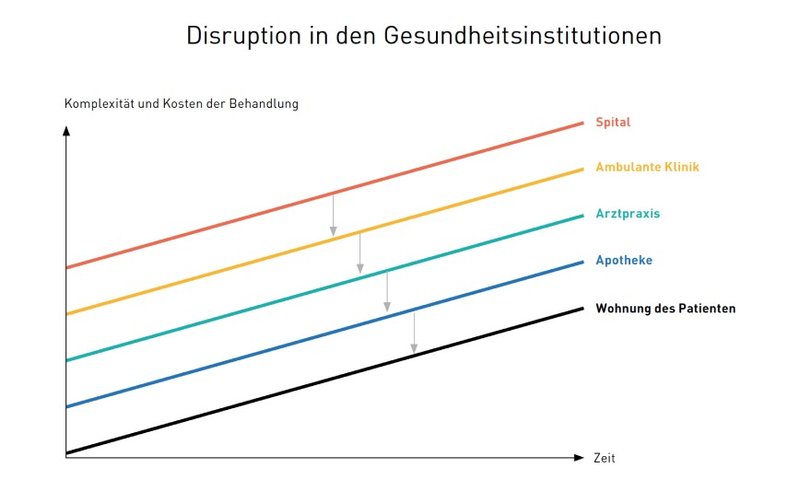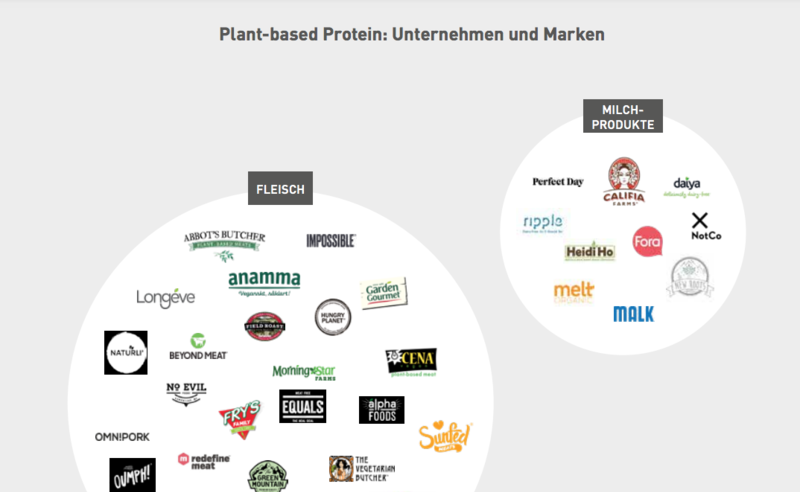Der nachfolgende Text basiert auf einem Auszug aus der GDI-Studie «Apotheke 2030», die über unsere Website bezogen werden kann.
Im Ökosystem der Apotheke 2030 sind viele Akteure vertreten, die auch heute schon wichtige Stakeholder sind. Diese können sowohl auf derselben Wertschöpfungsstufe wie die Apotheke operieren, wie beispielsweise Ärztinnen, Spitäler, Retail-Health, Pflege oder Krankenkassen. Oder sie stammen aus anderen Wertschöpfungsstufen, wie beispielsweise Logistik, Pharma oder Forschung und Universitäten. Neu hinzu kommen, beziehungsweise an Wichtigkeit gewinnen, werden in Zukunft Plattformen, Apps, Roboter und smarte Geräte. Die wohl wichtigsten Akteure sind und bleiben aber Konsumentinnen, Patienten und Kunden. Ihre Bedürfnisse und Konsumwünsche diktieren letztlich das Angebot der Apotheke 2030.
Heute denken wir in linearen und klar definierten Strukturen und Abläufen. So auch in der Wertschöpfungskette im Gesundheitssystem. Wir starten bei der Forschung und Entwicklung, über die Logistik gelangen die Angebote an die Points of Sale (Apotheken, Arztpraxen, Spitäler, Heime etc.) und von dort an die Kundinnen.
Bereits arbeiten alle Glieder der Wertschöpfungskette mit digitalen Tools. Sie sind jedoch meist ungenügend in das bestehende System integriert und werden losgelöst von den standardisierten Prozessen betrachtet. Dass die digitalen Tools ein wichtiger Teil der Wertschöpfung sind, lässt sich dennoch nicht leugnen.
Megatrends wie die Digitalisierung oder die Globalisierung verändern nicht nur die Kundenbedürfnisse, auch die Wertschöpfungskette befindet sich jetzt im Umbruch. Wir müssen uns daher von den linearen Strukturen lösen. Disruptionen brechen die lineare Kette auf, es findet eine Neu-Anordnung der Elemente zu einem Wertschöpfungsnetzwerk statt.
 gdi_wertschoepfungsnetzwerk_apotheke2030.pdf
gdi_wertschoepfungsnetzwerk_apotheke2030.pdfDie meisten Komponenten des Ökosystems Apotheke sind miteinander verknüpft. Für die Apotheke 2030 wird zunehmend wichtiger, welche Position sie im neu entstehenden Wertschöpfungsnetzwerk einnehmen kann und mit welchen anderen Playern sie vernetzt ist.
Das GDI stellt folgende These auf: Die Entwicklungen der vergangenen Jahre zeigen, dass man als unabhängige Apotheke in Zukunft kaum noch wird überleben können. Die Netzwerke gewinnen an Bedeutung. Diese These wird durch die Zahlen zur Apothekenlandschaft der Schweiz bestätigt. Die Erhebung des Branchenverbands Pharmasuisse, der Auftraggeberin der GDI-Studie, unterscheidet zwischen Ketten, Gruppierungen und unabhängigen Apotheken. Ketten wie Amavita-, Benu- oder Topwell-Apotheken gehören zu einem zentral verwalteten Unternehmen. Die verantwortliche Apothekerin arbeitet als verantwortliche Medizinalperson der Apotheke für das Unternehmen. In Gruppierungen wie Toppharm, Salveo oder Pharmacieplus hingegen schliessen sich unabhängige Apotheken zusammen, um von Synergien zu profitieren, zum Beispiel bei Einkauf, Marketing und Fortbildung. Der Apotheker bleibt unabhängiger Inhaber und verwaltet seine Apotheke selbstständig.
In den vergangenen Jahren haben Ketten und Gruppierungen stark an Marktanteil gewonnen. Der Anteil unabhängiger Apotheken hat sich seit 2009 fast halbiert, während die Ketten das grösste Wachstum an Verkaufsstellen verzeichnen konnten und im Jahr 2018 bereits 30,7 % des Marktes ausmachten.
Der physische Standort verliert zunehmend an Bedeutung, während die Position im Netzwerk wichtiger wird. Dies soll nicht heissen, dass die physische Nähe zu den Kunden in Zukunft keine Rolle mehr spielt. Es wird auch weiterhin physische Kontaktpunkte brauchen, diese können aber neue Formen annehmen. Anstelle der heutigen festen Apothekenstandorte können das auch Geister-Apotheken sein, die – analog zu Food-Delivery – lokal die zeitnahe Versorgung der Kundinnen sicherstellen, beispielsweise durch Pickup-Stellen, Hauslieferungen oder eine mobile Apotheke auf Rädern. Auch das Angebot wird sich verändern. Es stehen nicht mehr hauptsächlich die Produkte und das heute noch weit verbreitete «Schubladenziehen» im Vordergrund, sondern ergänzende Dienstleistungen und deren Bündelung zu attraktiven Paketen.

Studie, 2020 (kostenloser Download)
Sprachen: Deutsch, Französisch
Format: PDF
Im Auftrag von: pharmaSuisse

Das Gesundheitssystem ist im Wandel. Die stationäre Konsultation und Behandlung weicht immer mehr der Telemedizin. Die richtige Entwicklung?
Infografik: Wie KI das Gesundheitssystem neu sortiert
Das Gesundheitssystem erfährt eine fundamentale Umwälzung. Präzisere Daten und künstliche Intelligenz ermächtigen Patienten und Pflegepersonal, Analysen und Behandlungen durchzuführen, die früher nur von Spezialisten bewältigt werden konnten. Verschwinden dadurch Arbeitsplätze?
Was wäre, wenn? Infografik: Vegane Gesellschaft 2050
Es ist vorstellbar, dass wir im Jahr 2050 keine tierischen Produkte mehr konsumieren werden. Eine GDI-Infografik zeigt Wege zu einer rein veganen Ernährungsweise ohne Verzicht.